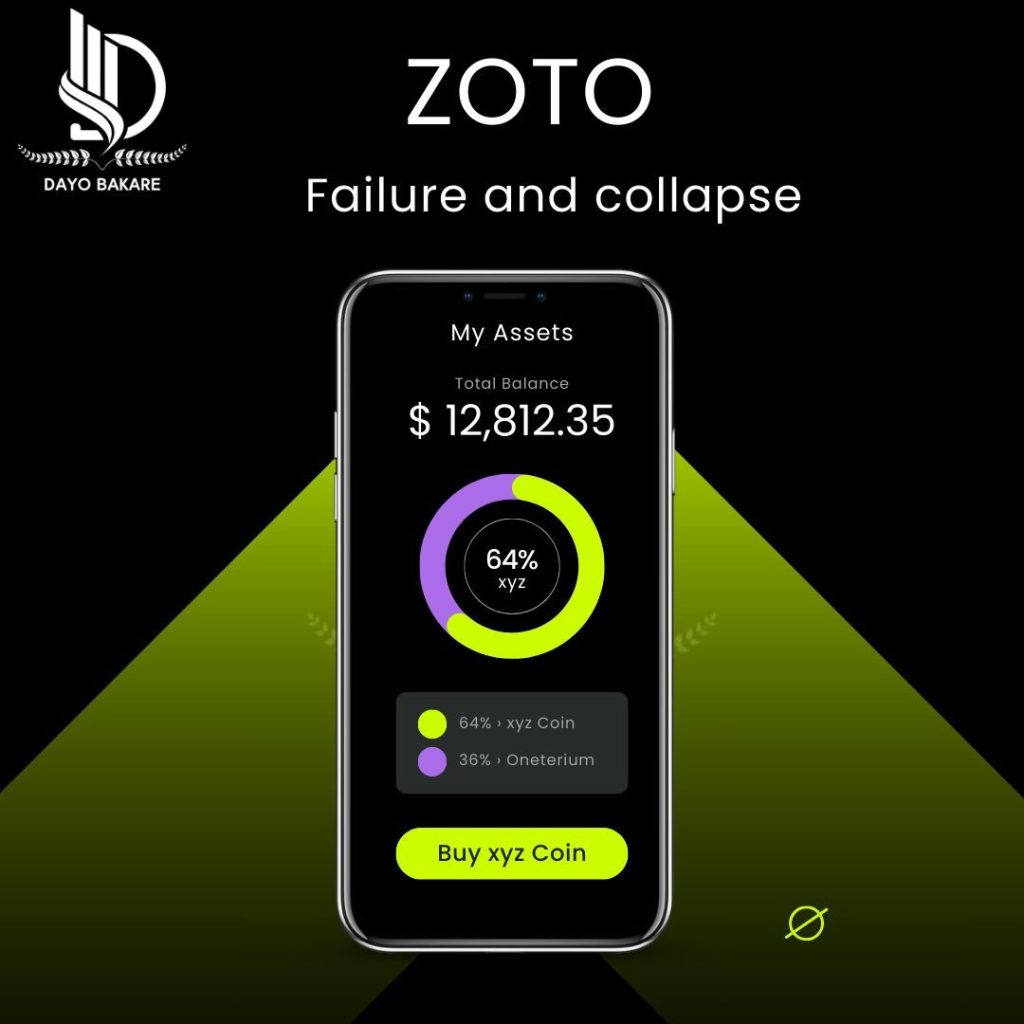In the ever-evolving financial technology (fintech) landscape, mobile payment solutions have become critical enablers of financial inclusion, especially in markets where traditional banking remains inaccessible to large portions of the population. Among the many players that sought to revolutionize the way people transact in Africa was Zoto, a mobile wallet service that initially gained traction for its user-friendly platform and attractive incentives. However, despite a promising start, Zoto failed to withstand the pressures of market competition and regulatory challenges, leading to its eventual demise.
Zoto’s Entry and Promise
Zoto launched in 2015 with a vision to transform mobile payments in Nigeria. By offering a convenient, fast, and secure platform for purchasing airtime, paying bills, and transferring money, it positioned itself as a solution to Nigeria’s growing demand for cashless transactions. Smartphone adoption and the government’s push for financial inclusion provided a conducive environment for Zoto’s services.
At its peak, Zoto appealed to the tech-savvy and cost-conscious Nigerian populace by offering attractive discounts and cashback incentives for transactions. Its user-friendly interface, combined with localized marketing strategies, allowed it to carve out a niche in the competitive fintech ecosystem. Consumers appreciated its simplicity, reliability, and cost savings, making Zoto one of the go-to mobile wallets in Nigeria.
Challenges Begin to Mount
While Zoto seemed poised for long-term success, it soon began to encounter significant challenges that ultimately led to its downfall.
- Intense Market Competition
The Nigerian fintech space is highly competitive, with major players like Paga, Flutterwave, and Opay dominating the market. These competitors brought deep financial backing and diversified offerings, ranging from payment processing and e-commerce integration to ride-hailing services. Unlike Zoto, which primarily focused on airtime purchases and bill payments, these firms provided a broader spectrum of financial and non-financial services.
Moreover, Zoto’s reliance on cashback incentives became unsustainable as competitors, buoyed by significant venture capital funding, aggressively expanded their market share with similar or better rewards programs. Users quickly shifted to platforms offering superior services and ecosystem integration, leaving Zoto struggling to retain its customer base.
- Regulatory Hurdles
Operating in Nigeria’s tightly regulated fintech environment proved to be a daunting task for Zoto. The Central Bank of Nigeria (CBN) frequently updated its policies to ensure compliance with anti-money laundering (AML) and Know Your Customer (KYC) requirements. These regulations, while essential for consumer protection and financial system stability, created operational bottlenecks for smaller firms like Zoto, which lacked the resources to build and maintain comprehensive compliance frameworks.
Licensing fees, stringent reporting requirements, and sudden policy shifts added to the financial strain on the company. For instance, the CBN’s directive mandating wallet providers to integrate with existing banking systems increased operational costs, further eroding Zoto’s already thin margins.
- Technical and Operational Limitations
As Zoto’s user base expanded, its infrastructure struggled to keep up with demand. Many customers reported issues such as delayed transactions, failed payments, and unresponsive customer service. These glitches undermined the trust Zoto had built with its early adopters.
In contrast, competitors like Paga and Flutterwave invested heavily in scalable and resilient technology, ensuring seamless user experiences even during peak periods. This technological edge enabled them to capture disgruntled Zoto users.
- Funding Constraints
While Zoto initially raised capital to establish its operations; it failed to secure follow-on funding that could have supported its growth and adaptation to market challenges. In a fintech environment where significant funding rounds are critical for scaling, Zoto lagged behind its competitors, which had access to both local and international venture capital networks.
This lack of adequate funding limited Zoto’s ability to invest in innovation, expand its service offerings, or address the operational inefficiencies that plagued its platform.
Key Lessons from Zoto’s Demise
Zoto’s story is a cautionary tale for fintech startups operating in emerging markets. Several lessons can be drawn from its rise and fall:
- Diversification is Essential
Zoto’s heavy reliance on airtime purchases and bill payments limited its growth potential. Successful fintech companies diversify their offerings to include value-added services such as micro-lending, insurance, and investment options. By doing so, they reduce reliance on any single revenue stream and increase their appeal to a broader customer base. - Regulatory Preparedness is Crucial
The fintech sector operates under complex and ever-changing regulatory frameworks. Startups must prioritize regulatory compliance by investing in legal expertise and building agile systems that can adapt to policy changes. Zoto’s inability to meet regulatory demands contributed significantly to its operational difficulties. - Infrastructure Scalability Cannot Be Overlooked
A strong and scalable technological infrastructure is vital for fintech companies aiming to expand their user base. Ensuring seamless transactions and robust customer support can mean the difference between retaining customers and losing them to competitors. - Funding and Strategic Partnerships Drive Longevity
Access to adequate funding enables fintech firms to scale and innovate. Strategic partnerships with banks, telecommunications companies, and payment processors can provide additional support in navigating market challenges and expanding service offerings.
The Broader Implications of Zoto’s Collapse
Zoto’s downfall underscores the challenges faced by fintech startups in emerging markets, where opportunities for growth are vast but come with significant risks. The rise of competitors like Opay and Flutterwave shows that success in this space requires a combination of innovation, adaptability, and resilience.
While Zoto’s failure may appear as a cautionary tale, it also serves as a valuable learning opportunity for future fintech ventures. By studying Zoto’s missteps, startups can better position themselves to thrive in an increasingly competitive and regulated industry.
Conclusion
Zoto’s ambition to redefine mobile payments in Nigeria was bold and promising. However, its inability to navigate the dual pressures of market competition and regulatory compliance ultimately led to its exit from the fintech stage. As the industry continues to evolve, Zoto’s legacy remains a reminder that sustainability in fintech requires more than an innovative idea—it demands adaptability, robust planning, and continuous investment in both technology and compliance.

